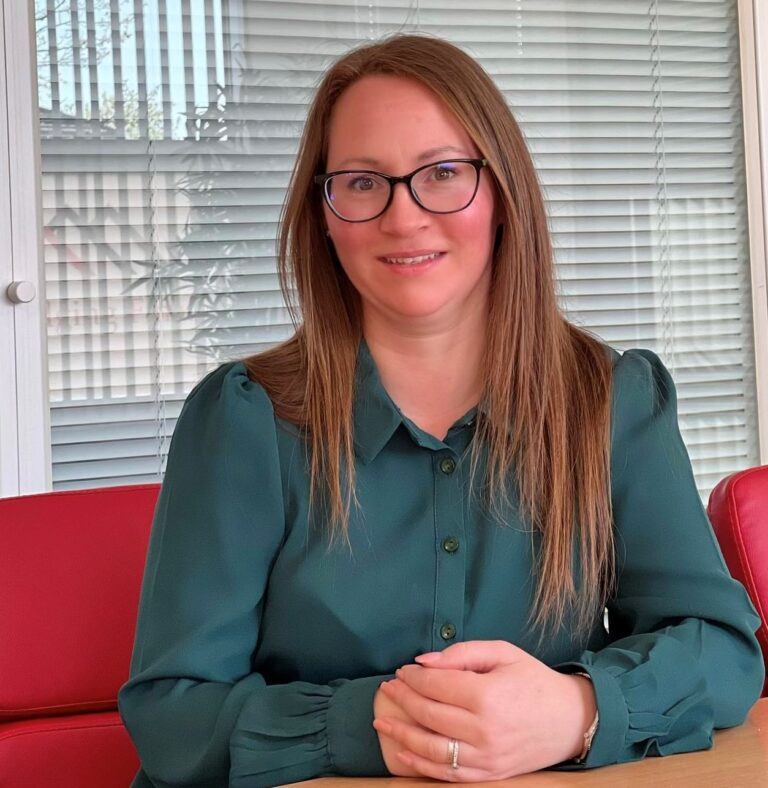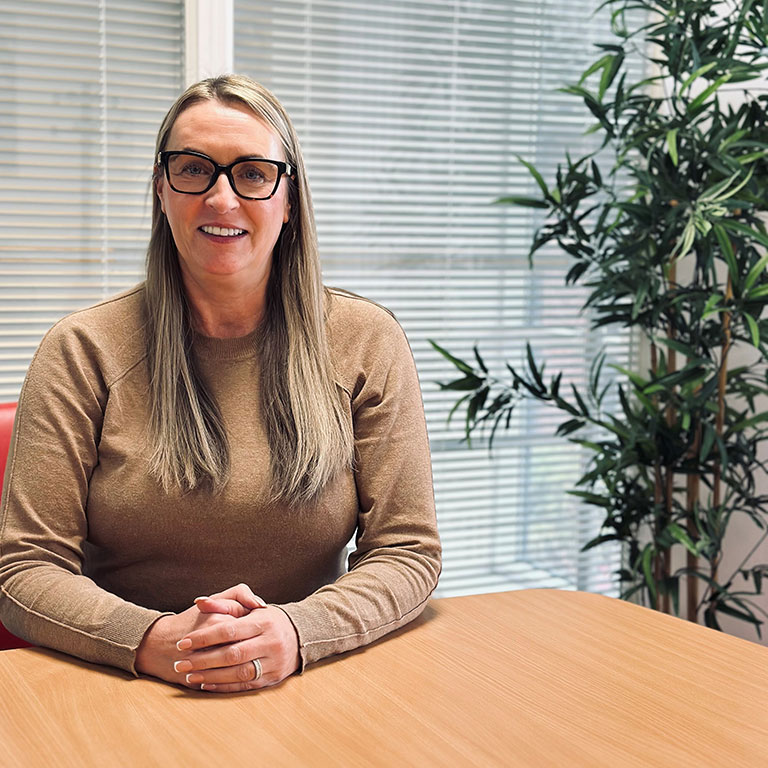Types of Mortgages
Speak to an Expert Advisor
or
Why Choose Us
Why Choose Us
Ascot Mortgages understands that taking out a residential mortgage is one of the most important financial decisions you will take in your lifetime and we understand how daunting it feels in the tough economic climate we are in today. There are so many mortgages available, different rates, different features, different fees etc. Ascot Mortgages will take the time to cut through all of these to secure exactly the right mortgage for your own unique personal circumstances.
What Our Clients Say About Us
Excellent service regular communication. Reassuring staff that help every step of the way and are extremely patient and supportive. I have used them twice and will continue to do so. Natalia and James thank you for all your work.
From supporting me with putting an offer on a house to explaining mortgage rates, income protection, and so much more, Courtney has been exceptional every step of the way. The ability to WhatsApp her with questions and receive timely updates has made the entire process seamless and stress-free.
I’ve already recommended Courtney and Ascot Mortgages to friends, and I wouldn’t hesitate to use her again in the future. If you’re looking for a knowledgeable, supportive, and dedicated mortgage advisor, I highly recommend her!
Recently I’ve been working a lot with Natalia Barry and Matthew Bradburn, who have both been outstanding. Whenever I have a question, they always have the answer immediately or will find it very quickly.
For anyone in search of a friendly, reliable service, Ascot Mortgages are definitely right for you.
Couldn’t thank them both enough for securing my mortgage on what was such a complex case and will 100% be using them in the future.
didn’t expect getting a mortgage and buying a house would be so easy, Tracey and Richard are extremely professional
made the entire process so easy
Deserve more than 5 stars !!!!!!! Alison should be proud 🙏🏼
If you want a clear, down to earth and friendly service, you should give Alison and her team the chance to help you. You won't be dissapointed.
Highly recommended!!
We highly recommend Natalia for mortgage advise
Not only did Natalia navigate the intricacies of the mortgage market with finesse, but they went above and beyond by suggesting other high-quality services, including solicitors and insurance providers. This comprehensive approach is making the entire home-buying journey seamless and stress-free.
Natalia took the time to understand our unique needs and financial situation, ensuring that the options presented were tailored perfectly.
Communication is prompt and clear throughout, leaving us feeling informed and confident at every stage. Natalia had our best interests at heart, going the extra mile to secure a fantastic mortgage deal.
We cannot recommend Ascot Mortgages and Natalia highly enough. If you're in need of mortgage assistance, look no further. With their expertise and dedication to client satisfaction, you're in the best hands possible. A huge thank you to Natalia for making our home-buying experience a dream come true!
In both cases we were treated with the utmost respect and professionalism.
In the case of the life insurance application, we considered ourselves to be problem customers because of our age and numerous health issues.
Richard Johnson, who managed this application couldn't have been more helpful.
He worked in our best interest and was dedicated to providing an excellent service.
We were kept up to date through all of the stages of the application and when our doctors were very slow in producing medical reports for the insurance company he persisted where others might have given up.
The service we had from Richard was pleasant and professional throughout some difficult stages.
My wife and I have no hesitation in recommending Ascot Mortgages.
Highly recommended for those who want to get the stuff done without any delays!
They were consistently communicative, keeping us informed at every step. Their assistance in consolidating our protection cover was invaluable, simplifying what could have been a complex process.
What set them apart was their personal touch – always polite and ready to pick up the phone for a chat. This level of personal engagement is rare and much appreciated.
In short, Natalia and Jason are not just skilled professionals but also truly dedicated to their clients. We highly recommend their services to anyone in need of mortgage advice.
Ascot Mortgages understands that taking out a mortgage is one of the most important financial decisions you can make in your lifetime and we understand how daunting this might feel in today’s tough economic climate.
With so many mortgages available, different rates to compare and fees to consider, Ascot Mortgages will take the time to cut through all of these to secure exactly the right mortgage for your own unique personal circumstances.
Contact us today to find the best mortgage for you.
We’re experts in finding the best mortgage for you
We are experts in finding precisely the best mortgage for every single customer. By finding the right mortgage, you have the potential to save a significant amount of money over the length of your mortgage agreement.
Whether you have a property and mortgage already and you are looking to reduce your monthly payments or lower your interest rate, you can be certain Ascot Mortgages will find the best remortgage deal for you. We offer great rates on 70% loan-to-value (LTV) mortgages, including many mortgage deals not available directly to the public. Regardless of your circumstances, we are here to help.
What are the different types of mortgages?
Especially if you’re new to the property ladder, it’s likely you have lots of questions about how to get a mortgage and which type suits you best. From fixed-rate mortgages to trackers and everything in between, it can be difficult to know where to start.
The good news is we can help you understand the difference between the various mortgage types, and help you secure a deal that fits your circumstances. Here are some of the main mortgage types and ways to repay that you might want to consider:
Fixed-rate mortgages
A fixed-rate mortgage is a type of home loan agreement where the interest rate remains the same throughout the term of the loan. This means that the lender’s monthly principal and interest payments remain the same, providing homeowners with stability and predictability.
In most cases, fixed-rate mortgages are offered in 15, 20 or 30-year terms. Due to the fact that the rate doesn’t change, homeowners are protected from interest rate increases in the market. However, you may find that rates can be higher than those of variable rate mortgages.
Fixed-rate mortgages are ideal for those who plan to stay in their home long-term and want consistently manageable monthly payments.
Tracker mortgage
Unlike a fixed-rate mortgage, a tracker mortgage has a variable interest rate. In most cases, this means that the interest will rise and fall in line with the Bank of England’s base rate for a certain period of time – this is usually two or five years. After this period of time, the mortgage will then revert to the lender’s standard variable rate.
If the base rate drops, your monthly mortgage payments will drop. This can mean that you may be able to overpay on your mortgage, which as a result could mean that you pay off your mortgage quicker.
However, if the tracker rate goes up, you will continue to repay the same amount as before, which could mean that it takes longer to pay off your mortgage.
Discounted mortgage
A discounted mortgage is a variable rate mortgage where the interest rate is set at a discount below the lender’s standard variable rate (SVR). This is fixed for a determined period of time, which is usually between two and five years. This type of mortgage means that borrowers pay a lower interest rate at first, which in turn makes repayments more affordable.
However, since the rate of the mortgage is linked to the SVR, it is possible for the monthly repayments to fluctuate if the SVR changes. It’s also important to note that once the discount period ends, the mortgage will return to the full SVR.
A discounted mortgage is a good fit for those looking for lower initial repayments – but it does also mean there is a risk of increased costs later on.
Capped-rate mortgage
A capped-rate mortgage is a variable rate mortgage where the interest rate can go up and down, but it will not rise above an agreed upper limit – this is known as the cap. This type of mortgage means borrowers have protection against significant interest rate increases but still benefit from possible rate decreases.
The cap is usually fixed between two and five years. Although the monthly payments can vary, the cap ensures that these repayments don’t exceed a certain amount.
Capped-rate mortgages provide homeowners with some level of security and flexibility, making them an attractive option to borrowers who want a variable rate mortgage with some built-in protection.
Current account mortgage
A current account mortgage combines a mortgage with a current account, allowing borrowers to balance their savings and income against the mortgage balance. All money, including salary and savings, is paid into one account linked to the mortgage. The interest is then calculated on the net balance, which reduces the overall interest paid and possibly shortens the mortgage term.
This type of mortgage may be best suited to those who are able to manage their finances well and want to reduce the interest to repay more quickly.
Offset mortgage
Unlike a current account mortgage, an offset mortgage means that your money, such as your current account and savings, are kept in separate accounts to your mortgage. However, the balances are ‘offset’ against your mortgage when it comes to calculating interest.
The money you have in savings isn’t used to pay off your mortgage – it is used to lower the total interest you will be charged each month. Your lender will then ‘take away’ the amount in your savings account from the amount you owe on your mortgage, and you’ll pay interest on what’s left. This means that you pay less interest compared to if you had a repayment mortgage.
High LTV mortgage
A high LTV mortgage is a home loan where the borrower puts down a small deposit – typically 5% to 10% of the property’s value – then borrows the remaining percentage from the lender. This type of mortgage is popular with first time buyers as it means not having to save a large deposit.
Although this type or mortgage can make owning a home more accessible, high LTV mortgages usually have higher interest rates. This is due to there being an increased financial risk for lenders. It’s also not unusual for some lenders to request guarantors or additional eligibility criteria.
There may be government schemes available to support first time buyers in securing high LTV mortgages with more desirable terms.
For more information, check out our mortgages FAQ page.
First time buyers
With so many deals to choose from, finding the right mortgage as a first time buyer can be confusing. However, if you are planning to purchase your first home, you have the potential to enjoy some great money-saving offers, including extras and incentives such as cash back and 3-year fixed rates.
Mortgages for first time buyers
At Ascot Mortgages, we can find the right mortgage for you as a first time buyer. Our service is impartial and brings you the best mortgages from the whole market. We currently have access to over a hundred high LTV mortgages for first time buyers with a deposit of 10% or less.
There are several types of agreements that can be especially well suited to first-time buyers. Some of these mortgage options include:
Shared ownership mortgage
Shared ownership is a mortgage scheme that enables buyers to purchase a share of a property and pay rent on the remaining portion owned by a housing association. This type of mortgage makes owning a home more affordable, especially for first time buyers and those who may not be able to purchase a property outright.
Guarantor mortgage
Also referred to as a family-assisted mortgage, a guarantor mortgage is where another person agrees to cover repayments if the first time buyer is unable to. This person is known as the guarantor, and it is usually a family member or close friend of the mortgage applicant. The guarantor’s property or savings can be used as security, therefore reducing the financial risk for the lender. This type of mortgage can help get first time buyers onto the property ladder, as well as those with low income or poor credit to secure a mortgage.
Right to Buy scheme
The government’s Right to Buy scheme allows eligible council or housing tenants in England to purchase their rented home at a discount. This scheme enables tenants to become homeowners. The discount is determined by tenancy length and property type.
Mortgage Repayment Calculator
What do you need to consider when moving home?
Moving home can be a stressful experience, especially when you’re also trying to understand the different types of mortgages available. You may want to switch mortgage providers, move to a bigger house and increase your loan amount, or you might be thinking of downsizing to lower your monthly repayments. Before you make a decision, it’s important to find out how much your house is worth so that you know what you are able to spend on a new home. Many companies offer a range of home mover services as part of their mortgage deals.
Remortgaging
More and more UK homeowners are remortgaging to save money on their monthly repayments. A remortgage is simply switching lenders or finding a better deal with your existing lender which could significantly cut your monthly outgoings. Find out more about remortgaging and how it could benefit you.
Based on a mortgage of £300,000 at 75% LTV and 25 years Today’s best buy mortgages
Latest mortgage best buys
See all mortgage best buysSpeak with Us Interest Rate Mortgage Type Monthly Repayment Amount Total Fees Max LTV 
4.14% Fixed £1,219 £30 75% 
4.18% Fixed £1,216 £1,025 75% 
4.18% Fixed £1,215 £999 75% 
4.20% Fixed £1,220 £1,403 75%
Remortgage
Remortgaging is applied when you keep
living in your present property while applying for another mortgage deal with a new lender. Before finding out how to remortgage and get the best offers from experts like Ascot Mortgages, you have to check meeting what parameters of the deal that can help you succeed the most. The range of background factors varies a lot — from the recently changed loan-to-value ratio or your existing agreement coming to an end.
Whether you are trying to get a more beneficial deal or searching for funding to improve your home conditions, remortgaging is one of the most advantageous scenarios to consider.
Apply for a Mortgage
Get things moving, apply for a remortgage.
Free unbiased mortgage advice is just a phone call away.
FAQ
The loan to value (LTV) rate determines how much you can borrow. A lower LTV typically results in better interest rates and more choice of lenders for remortgaging, as it represents lower risk to lenders.
Yes, you can choose to remortgage with a different lender. However, this should be based on factors such as interest rates, fees, and the terms and conditions of the potential new mortgage. Contact us today and we can help you to find the best option to suit your needs.
Most lenders will require a valuation of your property when you remortgage to ascertain its current market value. Some lenders may use an automated valuation model instead of a physical appraisal. Need help navigating this? Reach us today to discuss your mortgage needs.
Yes, when remortgaging a solicitor is required for both the mortgage lender and the applicant. Some mortgage lenders offer mortgage products that have a free legal facility. They handle the legal paperwork and advise on potential issues.
The amount you can borrow with a remortgage depends on multiple factors including your income, outgoings, credit score, the value of your property, and the lender’s criteria. Easy contact us to discuss your remortgage borrowing capacity.
The remortgaging process typically takes between 4 to 8 weeks, but can be quicker or slower depending on your circumstances and the lender’s processes. For help in understanding what you can expect, contact us today!
To improve your chances of being accepted for a remortgage, maintain a good credit history, ensure your income is stable, and reduce your overall debt. It can also help to have a clear purpose for remortgaging. Need advice? Reach us today.
It is possible to remortgage with bad credit, but options may be limited and interest rates may be higher. Some specialist lenders provide services for people with poor credit histories.
Applying for a remortgage will likely require a credit check, which can leave a footprint on your credit file. However, the impact on your credit score is usually minimal and temporary.
If your remortgage application is rejected, seek to understand why. It could be related to your income, property value, or credit score. You may need to consider alternative lenders or improve your financial situation. Contact us today for a free consultation and guidance on your options.
Yes, self-employed individuals can remortgage. However, you’ll need to provide more evidence of your income, usually in the form of HMRC documents for the last two or three years. If you’re self-employed and considering remortgaging, feel free to reach out to us whenever you’re ready to discuss this further.
Seeking advice on remortgaging can be beneficial to understand the costs, benefits, and potential risks. Professional mortgage advisors can guide you to make the best decision based on your circumstances. Need professional advice? Easy reach us and we always here to help!
Yes, there are fees involved in remortgaging. These can include exit fees from your current lender, arrangement fees for your new mortgage, valuation fees, legal fees, and broker fees. It’s important to factor these in when considering a remortgage.
Meet Our Team







A simples guide to mortgages
Video
Contact Us
Legal
Ascot Mortgages authorised and regulated by the Financial Conduct Authority and can be found on the FCA register (www.fca.org.uk) under reference 776062. The FCA do not regulate some forms of mortgages. The guidance and advice contained in this website is subject to UK regulatory regime and is therefore restricted to consumers based in the UK. There may be a fee for mortgage advice. The precise amount will depend upon your circumstances but we estimate it will be £599 per mortgage account. Ascot Mortgages Ltd give you the option to pay a non-refundable fee of £1299 payable with the application. If this option is taken, Ascot Mortgages Ltd will refund any procuration fee received by the lender.
Ascot Mortgages Limited is registered in England and Wales and have their registered office at 8 Webster Court, Westbrook, Warrington, WA5 8WD. The company’s registration number is 06764971.
We are a credit broker, not a lender. We work with the whole of the lending market. Typically; we will receive commission that will vary depending on the lender, product, or other permissible factors. The nature any commissions model will be confirmed to you before you proceed.
ICO Registration number is Z1842187
YOUR PROPERTY MAY BE REPOSSESSED IF YOU DO NOT KEEP UP REPAYMENTS ON A MORTGAGE OR ANY DEBT SECURED ON ITtypically; we will receive commission
©2025 AscotMortgages.co.uk – All Rights Reserved









